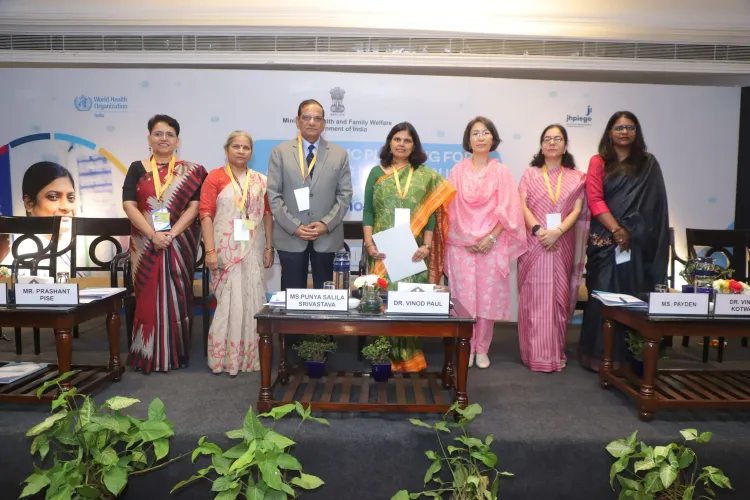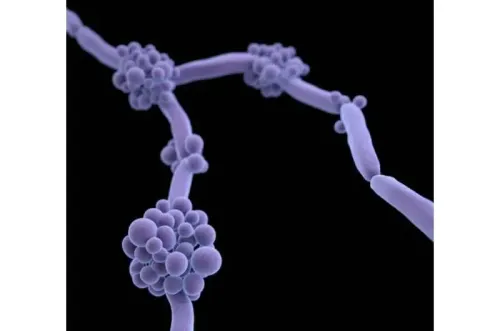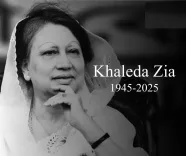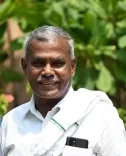Are Nurses and Midwives the Backbone of India's Healthcare System?

Synopsis
Key Takeaways
- Nurses and midwives are essential to India's healthcare framework.
- Recent reforms aim to enhance nursing education and governance.
- The establishment of the NNMC marks a significant milestone in nursing.
- Quality training for nurses is a critical focus area.
- Collaboration among stakeholders is vital for future improvements.
New Delhi, Nov 12 (NationPress) Nurses and midwives are considered essential to the framework of India’s healthcare system, as stated by senior government officials and experts on Wednesday.
Union Health Secretary Punya Salila Srivastava emphasized that, alongside Ayushman Aarogya Mandir and ASHA workers, they play a crucial role in achieving Universal Health Coverage (UHC).
She further pointed out that the best practices emerging from each state during this workshop should act as valuable inputs for national policy development, encouraging other states to adopt these models for improved nursing practices nationwide.
Srivastava addressed attendees at a three-day National Consultation and Experience Sharing Workshop focusing on Nursing Policy Priorities and best practices in India, aimed at enhancing policy discussions and fostering reforms within the nursing and midwifery sectors.
The workshop gathered key stakeholders, including policymakers, senior government officials, regulators, nursing educators, professional associations, and development partners from all over the country.
The goal of this consultation was to evaluate ongoing initiatives, pinpoint emerging challenges, and share innovative models to bolster nursing governance, education, and workforce management, aligning with India’s health sector priorities and the Sustainable Development Goals (SDGs).
Srivastava also highlighted that India’s recent reforms, such as the formation of the National Nursing and Midwifery Commission (NNMC), the adoption of competency-based curricula, and moves to modernize regulatory frameworks, represent significant milestones in enhancing the nursing ecosystem.
Professor V.K. Paul, Member Health, Niti Aayog, praised the Ministry of Health and Family Welfare and WHO for organizing this crucial consultation.
“India’s health system is globally acknowledged for providing quality healthcare, largely due to the strength and commitment of its nursing workforce,” he remarked, emphasizing that nursing is the foundation of India’s comprehensive healthcare system.
Dr. Paul expressed concern regarding the quality of nurse training, identifying it as a critical area needing attention. He highlighted the importance of reforms in nursing education and advocated for enhanced in-service training and skill development to uphold high standards of care and professional excellence.
During the event, Dr. Payden, WHO Representative to India, commended the country's considerable advancements in the nursing and midwifery sectors.
She pointed out that India has become one of the world's largest contributors to the global nursing workforce.










